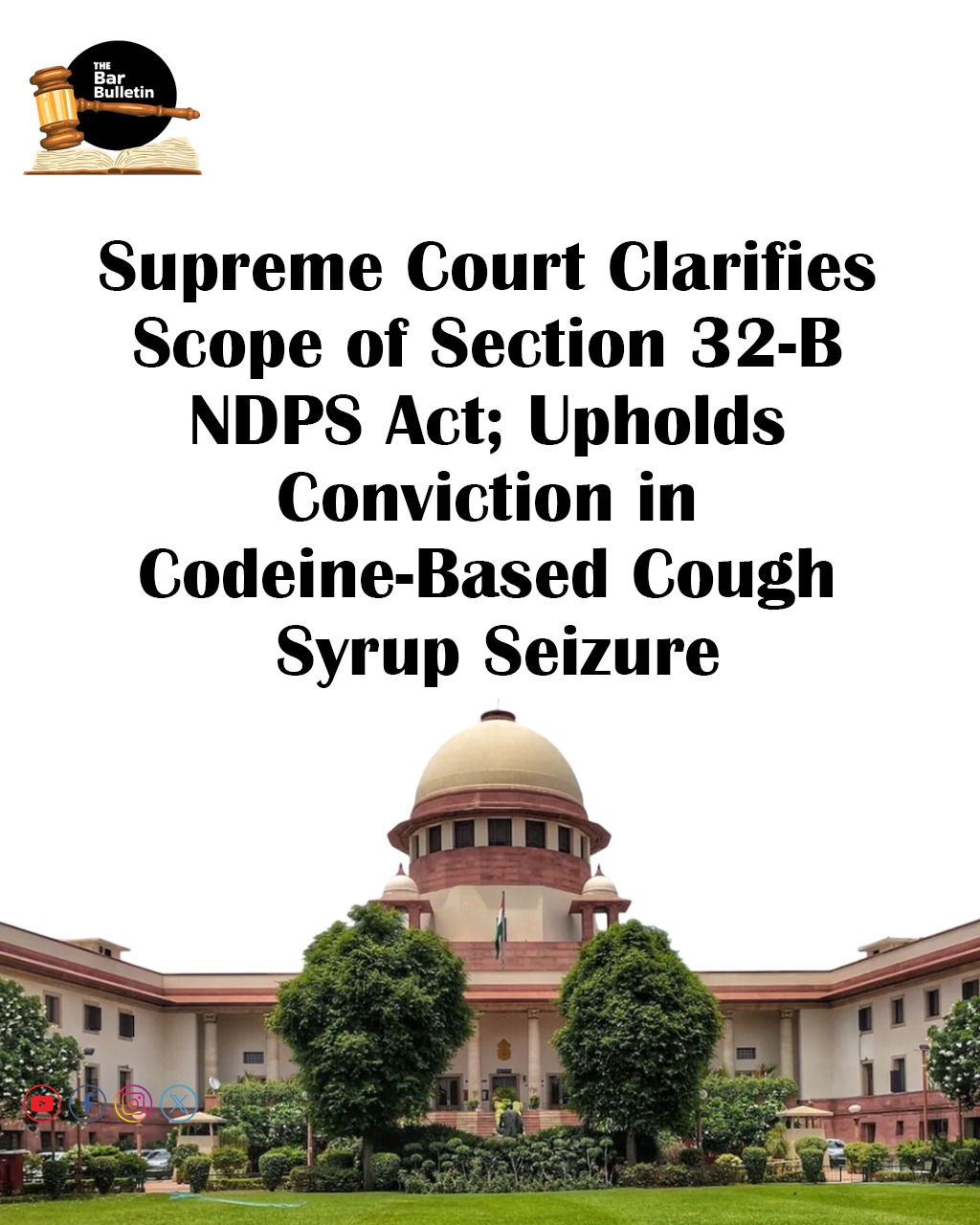The Supreme Court dismissed a special leave petition, clarifying the legal position that trial courts have a wide discretion to impose sentences higher than the statutory minimum under the Narcotic Drugs and Psychotropic Substances (NDPS) Act, 1985 NDPS Act by considering factors beyond those enumerated in Section 32-B, including the quantity of narcotics recovered.
In this case, the accused was convicted under Section 21(c) of the NDPS Act after 236 vials of cough syrup containing Codeine Phosphate, a controlled psychotropic substance, were recovered from his possession. The Special NDPS Court sentenced him to 12 years of rigorous imprisonment and imposed a fine of ₹1,00,000. On appeal, the Chhattisgarh High Court upheld the conviction but reduced the sentence to 10 years, holding that the trial court had not assigned any special reasons under Section 32-B of the NDPS Act to justify a punishment above the minimum. The accused approached the Supreme Court seeking further reduction in sentence.
A Division Bench of Justice J.B. Pardiwala and Justice R. Mahadevan adjudicated the matter. The Court examined the interpretation of Section 32-B, which lists factors justifying enhanced sentences. Relying on previous judgments in Rafiq Qureshi vs NCB[1] and Gurdev Singh vs State of Punjab[2], the Bench observed that the High Court had misinterpreted Section 32-B by treating the listed factors as exhaustive grounds, whereas established precedent permits courts to consider other relevant factors such as the sheer quantity of contraband recovered.
The Court clarified that the legislative intent behind Section 32-B is to provide flexibility in sentencing serious offenders. It observed that courts are empowered to consider any aggravating factors they “deem fit,” including the quantity of the contraband recovered, while determining the sentence within the statutory range. The Supreme Court highlighted that the aforementioned factor, for example, remains a legitimate consideration for awarding punishments beyond the minimum term, even in the absence of factors specified under clauses (a) to (f) of Section 32-B. The Court emphasized that Section 32-B cannot be used to convert the minimum sentence into a ceiling limit.
While the Court declined to interfere with the High Court’s decision to reduce the sentence from 12 to 10 years, it made significant observations regarding the incorrect reasoning applied by the High Court in its order. The decision serves as an important clarification regarding the scope of sentencing powers under the NDPS Act.
[1] (2019) 6 SCC 492
[2] (2021) 6 SCC 558
![]()



